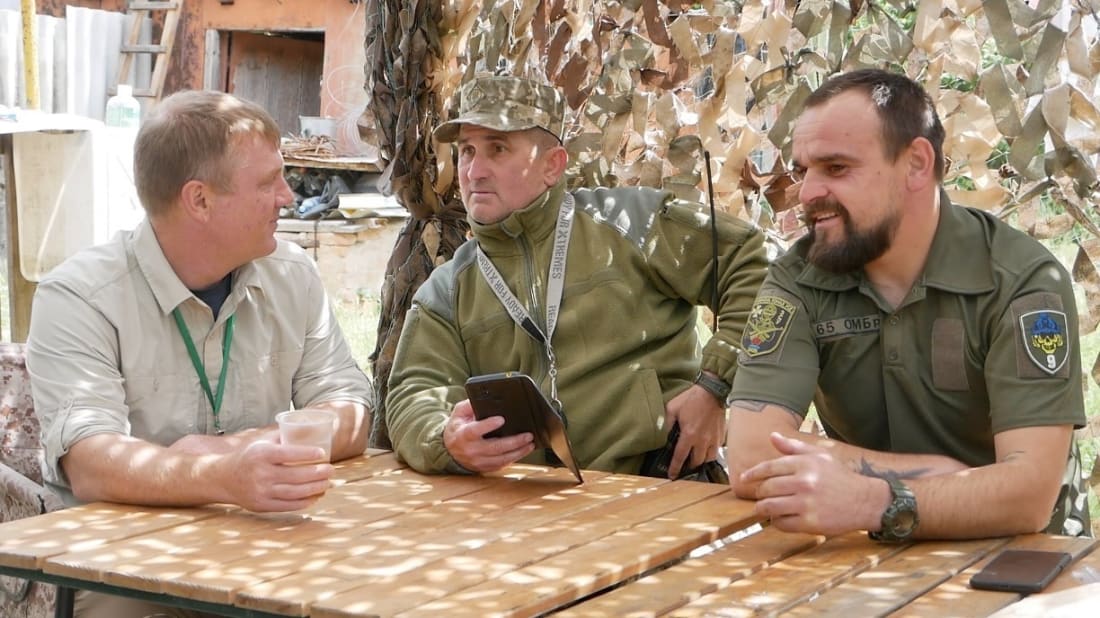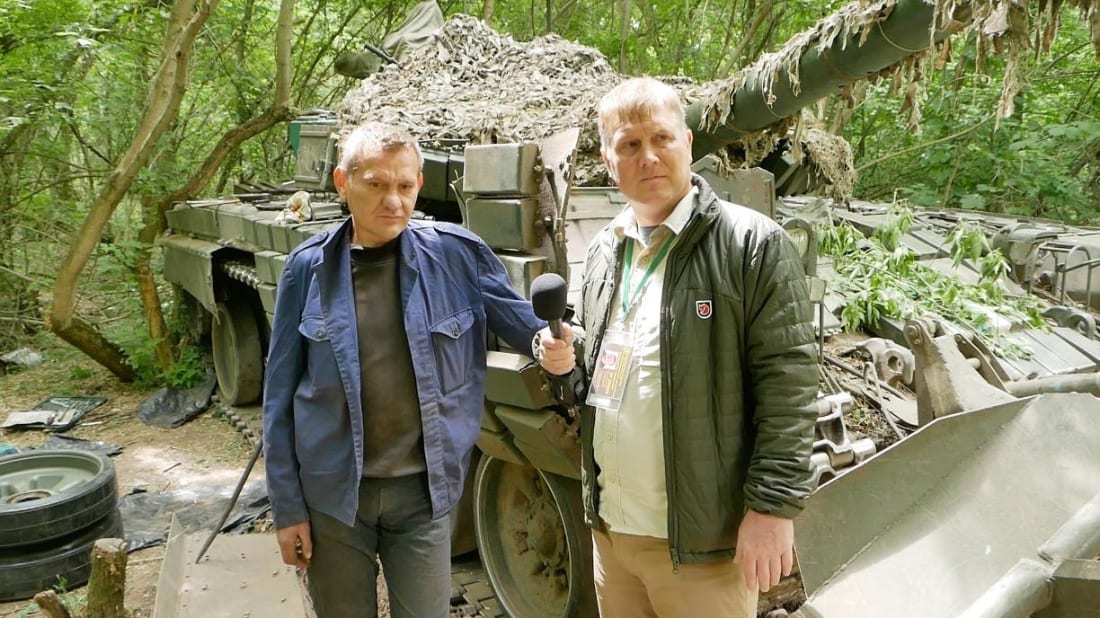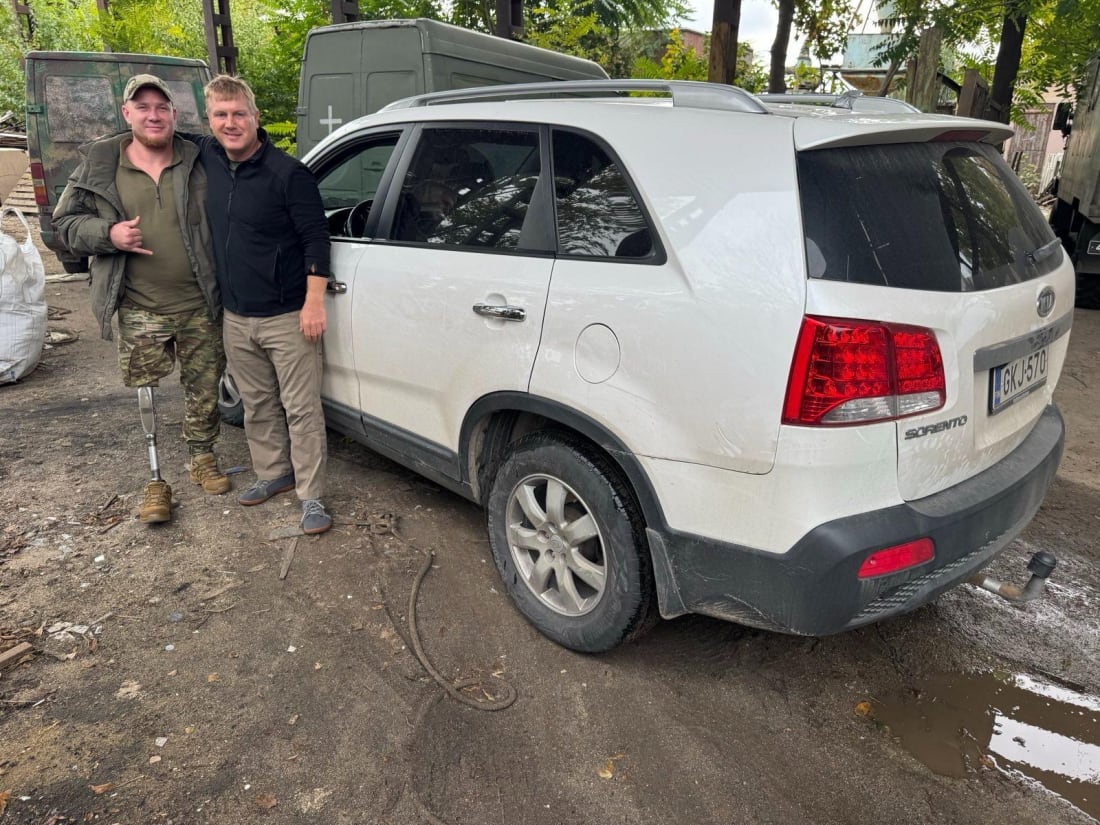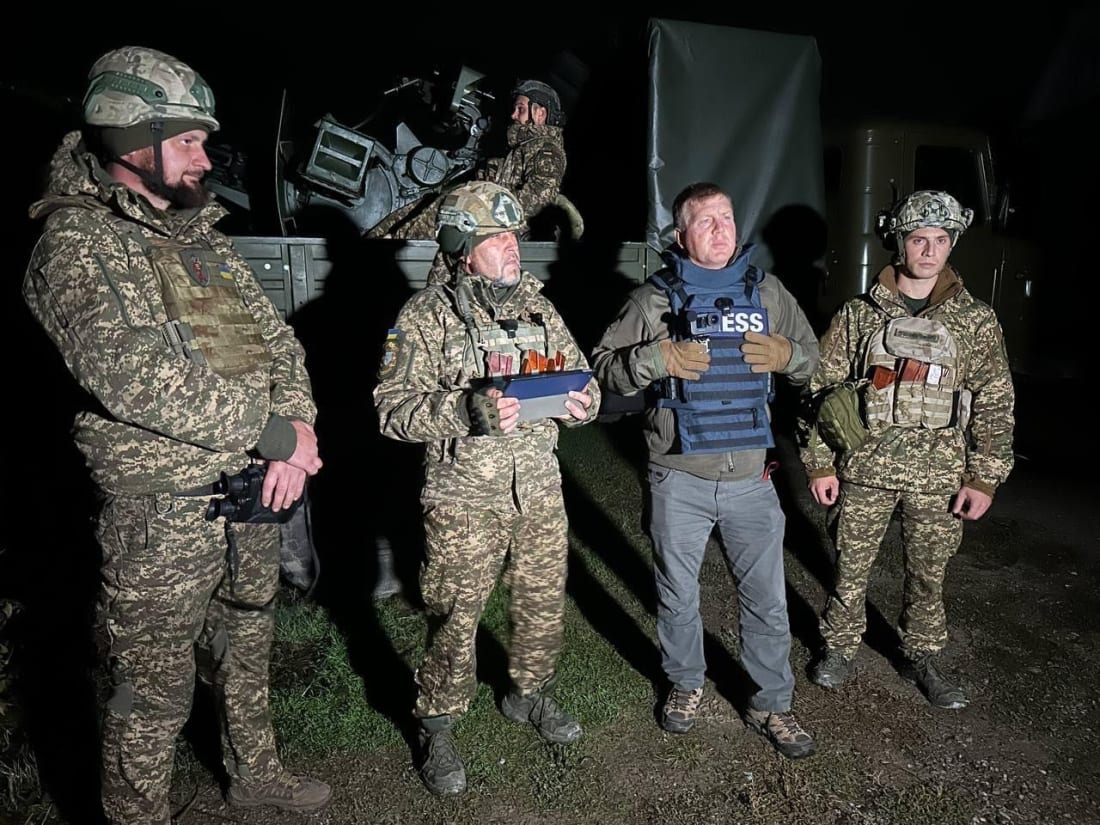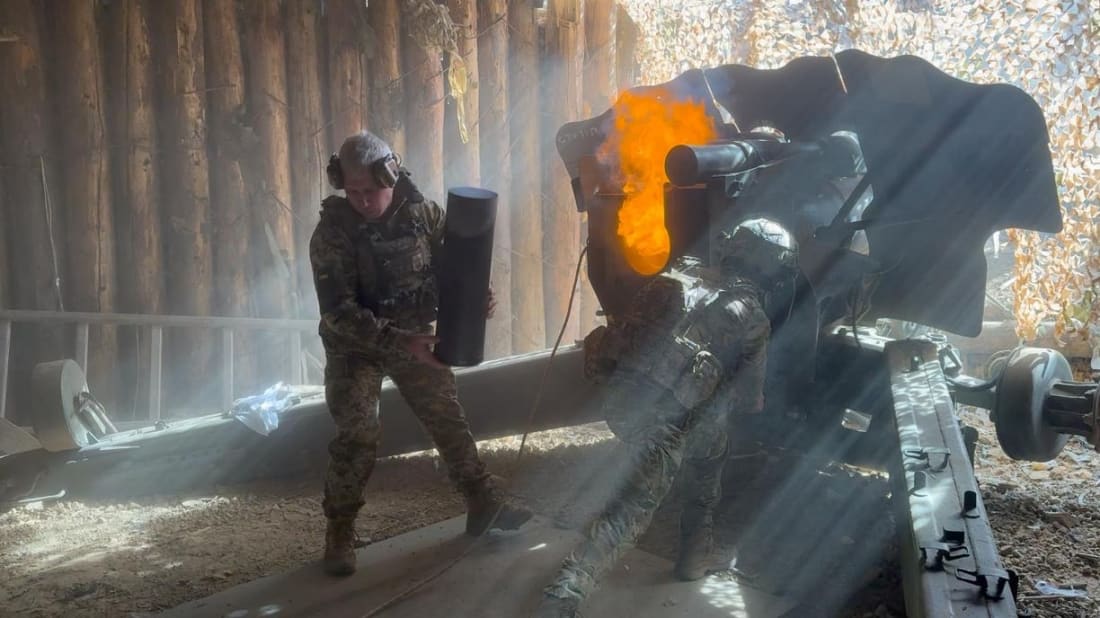|
 |
Thank you for being a free subscriber.. Don’t lose access. Please upgrade your subscription to Lincoln Square today with this limited-time offer.
Join us on the frontline in the battle for our rights and freedoms under the law. It's our duty as Americans to defend democracy. Together.
Ukraine Will Win
Ken Harbaugh just returned from another humanitarian mission in Ukraine. Here's the retired U.S. Navy pilot's story from the front lines.
I met “Spaniard” in early 2024, at his command post less than 4,000 meters from the front lines. To find him, my fixer and I drove our battered SUV through a war-ravaged village, minefields on either side, searching for a ruined farmhouse draped in camouflage netting.
As we sat down for the interview, outgoing artillery thudded nearby. I flinched. Spaniard did not. “You’ll know when it’s incoming,” he said, “when we flinch.” He had lived in Madrid for twenty years, but when Putin launched his full-scale invasion, Spaniard came home to fight. Russians are not doing that. It was my first indicator that Ukraine will win.
Spaniard’s troops were exhausted, he admitted. “But we are fighting for something real,” he said. “For our families … for our survival.” In Ukraine’s trenches, conditions were rough; in Russia’s they were worse. I spoke with several soldiers in his brigade, including the crew of a T-72 tank. They introduced me to a new term: human radar – the enemy’s tactic of sending waves of infantry toward Ukrainian positions, marking strong points by where the bodies piled up.
When I returned to Ukraine several months later, the war had changed. I could no longer interview a tank crew in the open, even beneath tree cover. Drones had transformed the battlefield, hunting anything that moved. But Ukraine held the edge —in technology, in tactics, and above all, in imagination.
I was there during Operation Spiderweb, Ukraine’s masterful drone strike deep inside Russia that destroyed nearly a third of Putin’s strategic bombers. He retaliated with waves of missiles and Shaheds, targeting both front-line positions and populated city centers. For twenty hours, I was pinned down 1,000 meters from Russian lines alongside a Ukrainian drone crew, riding out the assault.
What I remember most is not their fear, but their resolve — and their humor. The first night, our drones tracked Russian commandos crossing the Dnipro river on jet skis, attempting to infiltrate Ukrainian lines to hunt operators like those I was with. The team leader reassured me, “They’ll be dead in two hours.” I replied, in jest, “Make it two minutes — you’ve got an American reporter here.”
Suddenly, everyone grabbed their rifles, ready to head outside. “I’m joking!” I shouted. They burst out laughing—the joke was on me. The ability of Ukraine’s soldiers to laugh through hell is one more reason I know they will win. Also, they keep their promises – a few hours later, I watched the camera feed from a neighboring crew as they wiped out the Russian assault team.
On my most recent trip, I drove from Kyiv to Mykolaiv with a soldier named Andreii, who had lost a leg in the 2023 counteroffensive. After two years of rehabilitation, he was reuniting with his unit as a drone pilot. He could have stayed home, but chose to rejoin the fight.
As we headed south, we talked about our families and our hopes for the future. Over a video call, I met Andreii’s children, four-year-old Alexi and ten-month-old Nadia [Ed. note: the names have been changed]. Several hours into the drive, Andreii described the day he was wounded. His sixteen-man team had advanced into a minefield, and was surrounded by Russian forces and being pounded by artillery. Everyone was wounded, leaving Andreii to apply a tourniquet to his own mangled leg. Over the radio came the order: No rescue. Fight to the end. Save one bullet for yourselves.
Through the smoke, a lone truck appeared. The driver pulled five survivors aboard and drove them out under withering fire. Andreii never learned his name — only that he was from another brigade, and that they called him Spaniard.
I said nothing at first. What were the odds, in an army of more than a million, that it was the same man I had interviewed the previous year? When we stopped for gas, I showed Andreii a photo on my phone. He stared, then broke down. “That’s him,” he said. “He saved me.”
Spaniard is still at the front, but a reunion is being planned. The love these men have for one another — and for life itself — is more proof that Ukraine will win.
That trip overlapped with Putin’s birthday, which he marked, as he has every year since the invasion, with massive drone and missile bombardments of Ukrainian cities. From the edge of the Black Sea on the outskirts of Odesa, I waited for the wave to arrive. The mobile air-defense crew I had joined tracked the Shahed kamikaze drones as they launched from Russian-occupied Crimea and crept up the coast. Kherson was the first to be hit, then Mykolaiv. Soon, the horizon flashed with rocket and tracer fire, and the heart-sinking glow of impacts from drones that slipped through.
Anton, one of the gunners, received a news alert that his neighborhood in Mykolaiv had been struck. He texted his wife. No reply. But he stayed at his post, and when the drones appeared on the horizon, he and every man in the unit did their jobs. The twin-23mm cannons opened fire, and the Shaheds fell from the sky. Witnessing that kind of composure, under unimaginable strain, is one more reason I know Ukraine will win.
If the courage of those on the front lines is not proof enough, the numbers tell their own story. Ukraine’s deep strikes have reduced Russia’s oil refining capacity by more than seventeen percent — nearly a million barrels a day. Moscow now spends two percent of its GDP on enlistment bonuses to fill its ranks, while labor shortages push civilian vacancies into double digits. Tank losses outpace production two-to-one, and shortages of imported electronics have cut precision-weapons output by forty percent. More than $250 billion in capital has fled the country, inflation hovers near ten percent, and the ruble continues to fall. Meanwhile, Russia’s isolation deepens — its much-vaunted Russia–Arab summit collapsed when nearly every invited leader refused to attend
.As Russia’s ability to fight erodes, Ukraine invents new ways to bleed Putin’s war machine. And while Russian soldiers fight for one man’s vanity, Ukraine’s fight for something real — their homes and their families. I do not need numbers to know that. I have seen it in the eyes of those in the trenches and on the guns. Ukraine will win, because it must.
Ken Harbaugh is a retired Navy pilot, former congressional candidate, and host of The Ken Harbaugh Show.
DON’T MISS KEN HARBAUGH ON STRATEGY SESSION TONIGHT!
You’re currently a free subscriber to Lincoln Square Media. For full access to our content, our Lincoln Loyal community, and to help us amplify the facts about the assault on our rights and freedoms, please consider upgrading your subscription today with this limited-time offer:
Not ready to subscribe? Make a one-time donation of $10 or more to support our work amplifying the facts on social media, targeted to voters in red states and districts that we can help flip. Every $10 reaches 1000 Americans. The Truth needs a voice. Your donation will help us amplify it.
Want to help amplify this post? Please leave a comment and tell us what you think.
